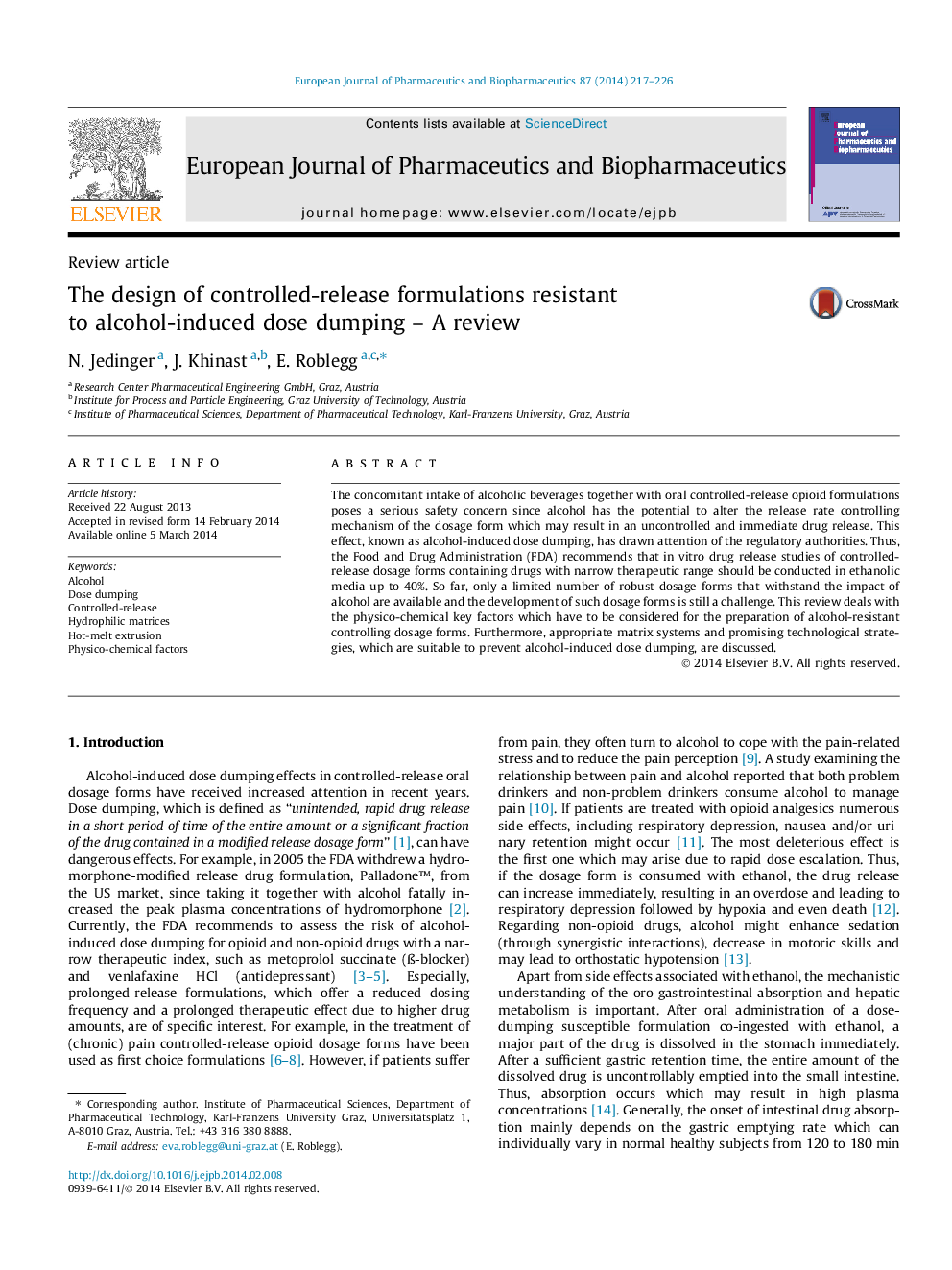| Article ID | Journal | Published Year | Pages | File Type |
|---|---|---|---|---|
| 2083553 | European Journal of Pharmaceutics and Biopharmaceutics | 2014 | 10 Pages |
The concomitant intake of alcoholic beverages together with oral controlled-release opioid formulations poses a serious safety concern since alcohol has the potential to alter the release rate controlling mechanism of the dosage form which may result in an uncontrolled and immediate drug release. This effect, known as alcohol-induced dose dumping, has drawn attention of the regulatory authorities. Thus, the Food and Drug Administration (FDA) recommends that in vitro drug release studies of controlled-release dosage forms containing drugs with narrow therapeutic range should be conducted in ethanolic media up to 40%. So far, only a limited number of robust dosage forms that withstand the impact of alcohol are available and the development of such dosage forms is still a challenge. This review deals with the physico-chemical key factors which have to be considered for the preparation of alcohol-resistant controlling dosage forms. Furthermore, appropriate matrix systems and promising technological strategies, which are suitable to prevent alcohol-induced dose dumping, are discussed.
Graphical abstractFigure optionsDownload full-size imageDownload high-quality image (107 K)Download as PowerPoint slide
